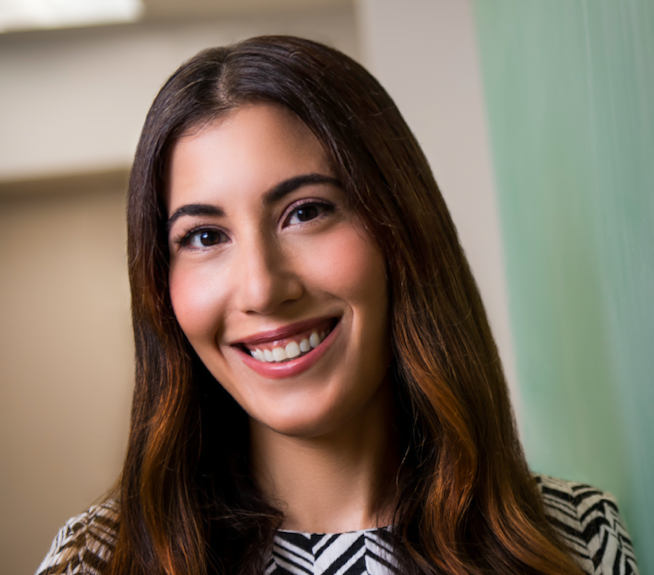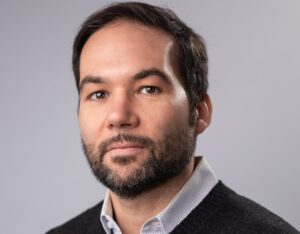How I got here: Renee Sieli of ERPR Group on creative storytelling and media savvy
Renee Sieli shares how a work-life balance can stoke creative thinking.

Renee Sieli, founder and CEO of ERPR Group
Renee Sieli, founder and CEO of ERPR Group, began her career in media relations by applying to a blind posting straight out of college. Working a challenging job in media relations for Fox News helped her develop her current approach to media relations and her professional conduct, marking one of the early chapters in her extensive career in the industry.
Sieli launched ERPR, a boutique firm specializing in media relations, in 2013. The founder and CEO has managed media relations for several leading brands, including Boston Dynamics, The AI Institute (owned by Hyundai and led by Boston Dynamics’ founder), Cox Media Group’s Gamut, Rhiza (acquired by Nielsen), Autodesk, PubMatic and more.
Throughout her career, Sieli has shaped how her clients engage with the media and the stories they share.
My first job in communications was right out of school:
I applied to a blind posting without knowing which company it was for. It turned out to be with Fox News in their media relations department. It was a very tough job, but it laid the foundation for how I approach media relations and conduct my work today. It was a great learning experience, providing me with extensive exposure. The way they handled media relations was unlike any other company I had seen. To this day, they still have some of the best publicists and communications professionals I’ve ever worked with. There was a lot happening in the news cycle at the time, so being embedded in that team was really interesting.
The thing I’m most excited about for the future of my profession is:
The rapidly evolving media landscape, which presents many new opportunities for different storytelling avenues. As a media relations professional, I find this incredibly exciting. It allows us to tap into our creativity and explore innovative ways to implement PR campaigns. I think about not only the new sister networks emerging but also the impact of social media on traditional media relations. Platforms like In the Know and Now This have revolutionized storytelling, offering diverse approaches beyond traditional TV and newspapers. This shift provides an opportunity to fuel creative ideas and execute campaigns that feel fresh and innovative. We can generate new concepts and implement them in exciting and new ways.”
A tool or a piece of software I cannot live without is:
I use a lot of tools, but the one I gravitate to the most is Critical Mention. It’s a media monitoring tool, and what I find really interesting about it is it enables you to search things on the fly; it’s not stagnant. If you have a company that has a lot of product announcements, you can build those searches. It also allows you to build coverage reports in a really unique way, and I think that gives insight into what sort of impact one story has. How does a placement in one outlet influence the way others will report on a story? Because you are able to break things down that way, it gives a lot of intelligence to the job. I found it impactful for getting more strategic advice and also understanding the ROI of particular media relations campaigns.
The most underrated skill in my profession is:
Creative storytelling, not just thinking about media relations as putting out a press release and sending it to a media list. I don’t believe that’s the best way to engage with the press; I think there are much more creative ways to get a story out there. A caveat to that is a deep understanding of how the media functions. I believe that being really good in a media relations role means being able to work cohesively with the media, meeting deadlines, and understanding that when you pitch something, you need to be responsive. The more you can complement how the media functions, the more successful you can be.
One piece of advice I would give other people in my profession is:
I am a big believer in internal learning and curiosity. I am a very curious person, but in this career, it’s particularly important because you have to continually invest in your skill set in order to be at the top of your game. I had an old boss who told me, ‘you have to start reading the news like a publicist, and you have to read the news every day to understand what the media focuses on.’ Fifteen years into my career, it’s still something I do every day. The moment you take your finger off the pulse is the moment you lose your edge. Investing in that and making it a priority is really important.
One way I maintain my work-life balance is:
As a business owner and being in the media, on either side, it can be very difficult because you never know when there is breaking news, or when there is a deadline. It has taken me a while, but I’ve had to really learn to be intentional about it. Intentional about taking time away from work. I love what I do and that also makes it hard, but I’ve had to really learn that rest is an important part of being productive, whereas previously I might’ve thought that rest was counterproductive. Being intentional about scheduling that time is really important, not just for resetting and being at the top of your game, but also for stoking creative thinking. When you give yourself space away, it gives you the opportunity for your mind to clear and really think creatively.
Isis Simpson-Mersha is a conference producer/ reporter for Ragan. Follow her on LinkedIn.







